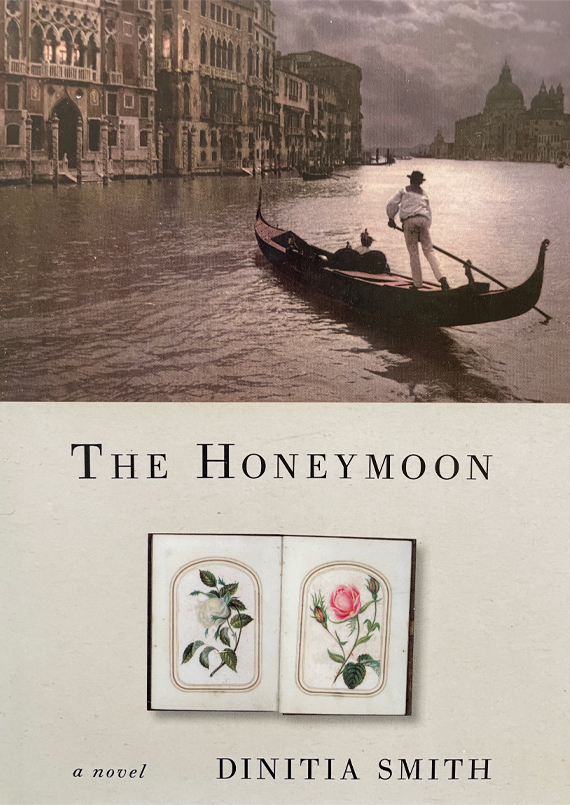The Honeymoon
The Honeymoon
Dinitia Smith’s spellbinding novel recounts the 19th century author, George Eliot’s, honeymoon in Venice in June 1880 following her marriage to a handsome young man twenty years her junior, and the dramatic events that unfold.
When George Eliot agreed to marry John Walter Cross, she was recovering from the death of her beloved companion of twenty-six years, George Henry Lewes. She was bereft: left at the age of sixty to contemplate profound questions about her physical decline, and a future of loneliness.
In her youth, Eliot, whose real name was Mary Ann Evans was a country girl, considered too plain to marry. She educated herself in order to secure a livelihood. In an era when female novelists were objects of wonder, she became the most famous writer of her day—with a male nom de plume. The Honeymoon explores different kinds of love, and the possibilities of redemption and happiness even in an imperfect union. Smith integrates historical truth with her own rich rendition of Eliot’s inner voice, crafting a page-turner that is as intelligent as it is gripping.


The Washington Post
“[T]he perfect example of when fictional storytelling about an eminent person is warranted.”
The New York Times Book Review
“Smith’s enchanting account humanizes a figure renowned as much for her refutation of conventional female stereotypes and social limitations as for her genius for story and language.”
Booklist (STARRED REVIEW)
“[R]aises the bar for historical fiction…Eliot fans will certainly inhale every page, but any historical-fiction reader will thoroughly relish Smith’s tale of a remarkable woman and an unlikely Victorian love."
Vanity Fair
“A mesmerizing reimagination of George Eliot’s accursed marriage.”
Vogue
“A deep dive into love’s turbulent waters, and into the mysterious heart of a person we thought we knew best.”
Kirkus Reviews
“[This] appealing fictionalized biography of the revered British novelist George Eliot imagines the inner impulses and passions hidden under a cloak of 19th-century propriety… Smith's portrait of the author is nicely detailed, effectively locating her in time, place, and society.”
Library Journal
“Smith has admirably fleshed out her subject, and her take should be welcomed by anyone interested in the life of this great writer--and in historical fiction generally.”
André Aciman, author of Out of Egypt: A Memoir
“[T]his book will fill your imagination like a new friend you can’t believe you’ve lived so many years without. Smith’s George Eliot is brilliant and bold—as you know she is—but Smith is equally daring and no less incisive. She is as worthy a successor to so formidable a writer as is Colm Tóibín to Henry James.”
Rebecca Mead, author of My Life in Middlemarch
“In this affecting novel, Dinitia Smith brings a biographer’s diligence and a novelist’s imagination to bear upon the life of George Eliot. Smith hews closely to the factual contours of Eliot’s last months—in particular, her marriage to a man twenty years her junior—while making provocative, speculative leaps into the mind and heart of the Victorian author. In so doing, Smith finds a way to consider some of the same questions that preoccupied Eliot in her own masterful fictions: What is the meaning and purpose of marriage? What are the challenges of imagining our way into the experience of those around us? And how might we—even with the best intentions in the world—fail in our comprehension of those closest to us?”
Jay Parini, author of The Last Station
“The Honeymoon is one of those novels that seems to unfold without words, perfectly imagined, like a dream. It’s an eloquent story about George Eliot’s late marriage to a much younger man; but this only touches the surface. Dinitia Smith digs into the interior life of genius here — exploring the greatest English novelist of the Victorian period. She brings that fine mind, and this astonishing age, to pulsing life. I love the pace of the narrative, the deep feeling that dwells here, deepening at every turn. This is wonderful fiction, taking us into the interior of human consciousness itself, into the heart of creation.”